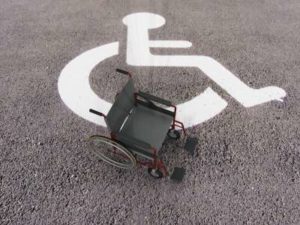 “Slip and fall” is a slang term for personal injury claims known as premises liability, particularly those that involve stores where customers are injured when they slip, slide, or trip on merchandise, spilled food or beverages, leaks and other items on the floor. Although retailers have come a long way in improving in-store safety, there are still frequent cases of customer injuries in retailers, even in modern stores in Tarrant County or Dallas County. If you sustain injury due to a dangerous property condition, contact a premises liability attorney to discuss your case.
“Slip and fall” is a slang term for personal injury claims known as premises liability, particularly those that involve stores where customers are injured when they slip, slide, or trip on merchandise, spilled food or beverages, leaks and other items on the floor. Although retailers have come a long way in improving in-store safety, there are still frequent cases of customer injuries in retailers, even in modern stores in Tarrant County or Dallas County. If you sustain injury due to a dangerous property condition, contact a premises liability attorney to discuss your case.
History of slip and fall lawsuits in Dallas and Fort Worth
Slip and fall cases reach back to the beginning of the department store and supermarket era in the 1940s and 1950s. Large stores started to replace smaller stores and as you are probably aware, in larger stores there are fewer employees per square foot so it is easier for spilled liquids or food products on the floor to remain uncleaned and cause injury to unsuspecting customers. So these personal injury cases begin to appear where customers were slipping on messes on the floors and injuring themselves.
Many of the cases involved grocery stores where customers were slipping on banana peels (hence the pop culture and cartoon references to slipping on banana peels) but also include grapes (which become slippery when crushed on the floor), liquids, and in the case of one department store that had a cafeteria inside it, even pizza on the floor (think of the cheese and sauce and it was a marble floor – very slippery).
Safety measures on Dallas and Fort Worth slip and fall injuries
After courts handing victories to plaintiffs (and some to the defendant-retailers) retailers began to institute safety measures to avoid causing injuries in their stores and to prevent losing at trial when injuries occurred. Some of the more common methods include frequent and periodic walkthroughs to locate messes on the floor and clean them, merchandise displays that prevent merchandise from sliding onto the floor (such as not stacking bananas) and the use of carpets and rugs around food and beverages to prevent slippery spills (such as the rugs beneath water fountains).
The standard the courts set that led to these safety measures is extremely reasonable. Businesses are responsible for creating safe public areas. They have a duty to reasonably prevent customer injuries, including reasonable steps to detect possible causes of injuries (such as spilled liquids) and clean them in a reasonable time. They also have a duty to not construct public areas in a way likely to cause injuries. For example, if you have marble floors where drinks spill, you better put down mats to prevent slipping. Businesses may not avoid discovering causes of injuries to avoid liability. If a customer informs employees of a mess the business should take steps to clean it in a reasonable fashion.
Liability after employing slip and fall safety measures in Texas
The flip side of that rule is when companies take reasonable efforts to avoid injuries, but injuries occur in spite of properly executed safety measures, they are generally not liable for those injuries. For example, a grocery store has employees walk through the produce section every fifteen minutes to check for spilled produce. In between walkthroughs customer A spills grapes. Minutes later customer B slips on them. Nobody informed the employees of the spill. The store is probably not liable because it took reasonable steps to prevent accidents and had no knowledge.
In situations like this, we would want to consider several issues. Did anybody tell the employees there was a mess? Did the store actually have people walking through the area? Is fifteen minutes a reasonable interval? Was the grape display set up in such a way that grapes frequently spilled? Should the store have known grapes were often on the floor? Particular facts may prove the store failed to take reasonable steps to insure safety and should be liable for injury.
Other property-related injuries in Dallas and Fort Worth and hiring an attorney to represent your claims
Slipping on messes on the floor is not the only way stores injure customers. A common source of injuries comes from above, not below these days. Many stores use the top of shelving units that extend to the ceiling. This puts merchandise above the view of most customers where it can fall and strike customers causing serious injury. In the case of merchandise stacked on top of shelving units, the merchandise is sometimes poorly stacked. A customer reaching into merchandise on one side can cause merchandise to fall on the other.
While some courts disagree whether there is liability when one customer has actually set into motion the injury of another customer, many courts hold that the store is liable for its dangerous use of the top shelf.
If you have been injured at a store or restaurant you should contact an attorney to discuss your injuries.

Comments are closed.